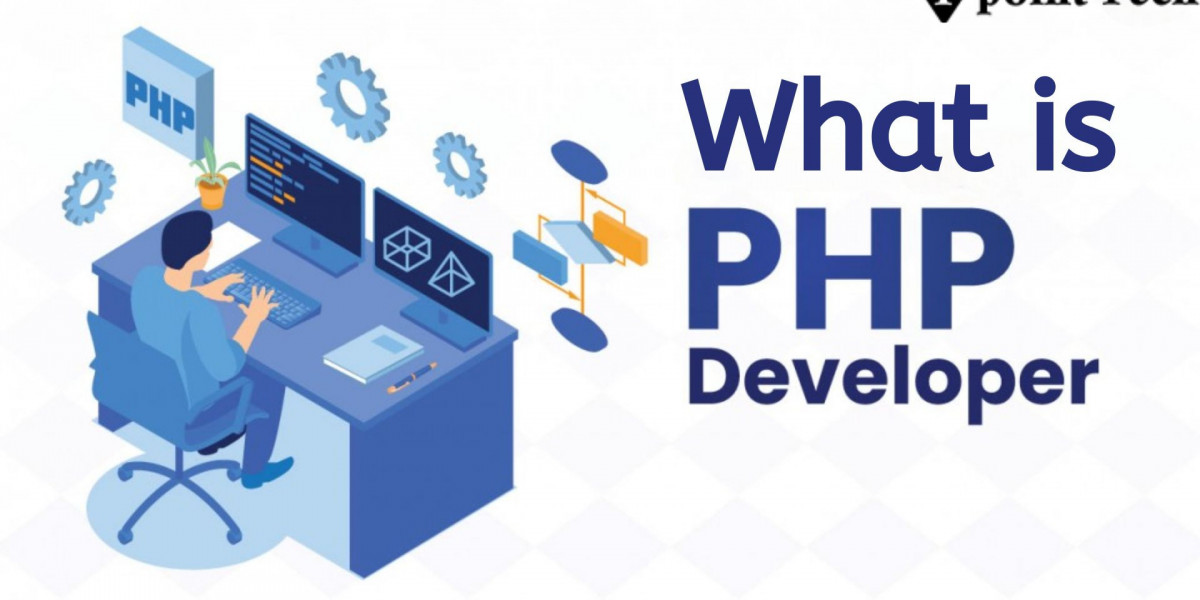In the vast world of web development, one role that continues to remain essential is that of a PHP developer. Despite the emergence of newer programming languages and frameworks, PHP still powers a large portion of websites across the internet. So, what is PHP developer, and why does this role remain so relevant in today’s digital landscape?
In this blog, we’ll break down who PHP developers are, what skills they need, their daily responsibilities, the career opportunities available, and the key features of PHP that make it such a popular language in web development.
What is a PHP Developer?
A PHP developer is a type of software developer who specializes in writing server-side scripts using PHP (Hypertext Pre-processor). PHP is an open-source scripting language primarily used for web development, enabling dynamic content, database interactions, and robust back-end functionality.
When we talk about what is PHP developer, we refer to a professional who builds, maintains, and optimizes web applications or websites where PHP is used as the core back-end language. These developers are often responsible for creating logic that connects web interfaces with databases, handling data exchange, and ensuring that websites perform efficiently and securely.
Why PHP Still Matters
Despite being one of the older programming languages, PHP remains widely used because of its flexibility, ease of use, and active community. Many content management systems and platforms are still built on PHP, and companies continue to rely on it for both legacy systems and new web projects.
One of the reasons PHP developers are still in demand is due to the unique features of PHP that make it ideal for web development. Let’s explore those next.
Key Features of PHP
Understanding the features of PHP helps us better appreciate why PHP developers play a significant role in the tech industry. Here are some core features that contribute to PHP’s popularity:
1. Open Source
PHP is free to use, which makes it a cost-effective choice for businesses and developers.
2. Cross-Platform Compatibility
PHP runs smoothly on various operating systems, including Windows, Linux, and macOS, and works well with different web servers.
3. Embedded in HTML
PHP can be embedded directly within HTML, making it easy to create dynamic web pages without switching between different technologies.
4. Database Integration
PHP integrates seamlessly with various databases, especially MySQL, allowing for smooth data management and retrieval.
5. Wide Community Support
With a large community of developers and contributors, PHP has vast resources, libraries, and frameworks that make development faster and more secure.
6. Scalability
PHP can support projects of all sizes—from small websites to large-scale enterprise applications.
These features enable PHP developers to build highly functional and adaptable web applications, which keeps their skills in high demand.
Essential Skills for a PHP Developer
To succeed in this role, a PHP developer must master a combination of technical and soft skills. Here’s what most employers and projects look for:
1. Proficiency in PHP
This goes without saying—a solid understanding of PHP syntax, functions, and best practices is essential.
2. Database Knowledge
Most PHP applications are database-driven, so familiarity with relational databases like MySQL or PostgreSQL is crucial.
3. Front-End Understanding
While PHP is a back-end language, knowledge of front-end technologies like HTML, CSS, and JavaScript helps developers build more integrated and interactive web applications.
4. Framework Experience
Many developers use frameworks like Laravel or Symfony to speed up development. Understanding how frameworks structure code and handle routine tasks is a major plus.
5. Version Control Systems
Familiarity with tools like Git helps manage code changes and collaborate with other developers effectively.
6. Problem-Solving and Debugging
Writing clean code is important, but the ability to debug issues and find solutions is what truly sets great developers apart.
Day-to-Day Responsibilities
A PHP developer’s daily tasks can vary depending on the type of company or project. However, common responsibilities include:
- Writing clean, reusable PHP code
- Designing and managing databases
- Creating back-end components and services
- Integrating with APIs and third-party services
- Testing and troubleshooting applications
- Collaborating with front-end developers and designers
- Maintaining and updating existing websites and applications
These tasks help keep web applications running smoothly, securely, and in line with modern user expectations.
Career Path and Growth Opportunities
A career as a PHP developer can begin at an entry-level position and expand into more advanced roles over time. Here's a typical career progression:
1. Junior PHP Developer
Focuses on learning the language, writing basic scripts, and supporting senior team members.
2. Mid-Level PHP Developer
Handles more complex tasks, manages databases, and takes part in full project cycles.
3. Senior PHP Developer
Leads development teams, oversees project architecture, and ensures best practices are followed.
4. Technical Lead or Software Architect
Manages entire application infrastructures, makes high-level decisions, and mentors junior developers.
5. Freelancer or Consultant
With experience, many developers move into freelance work or consultancy roles, offering specialized services to a variety of clients.
In addition, PHP developers often branch into full-stack development, project management, or even entrepreneurship, leveraging their web development expertise to launch their own startups or digital products.
Final Thoughts
So, what is PHP developer in today’s web development ecosystem? Simply put, they are professionals who play a critical role in building and maintaining the dynamic, database-driven applications that power much of the modern web.
Armed with the ability to harness the features of PHP, these developers create everything from small business websites to complex enterprise platforms. If you’re considering a career in web development, becoming a PHP developer is still a relevant and rewarding path—especially if you enjoy solving problems, building digital tools, and working in a constantly evolving field.
Whether you’re just getting started or looking to sharpen your skills, the world of PHP development offers plenty of opportunity, challenge, and growth.










